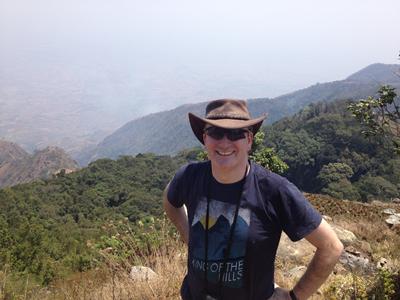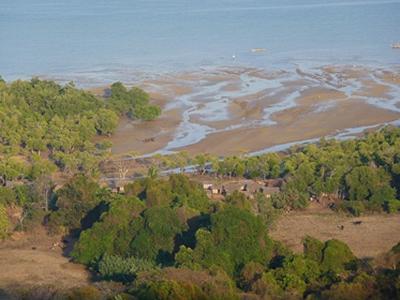SSS UN Day Blog- Professor Guy Poppy

This is the latest blog in our series of speaker and project bios for the Sustainability Science at Southampton UN World Development Information Day Seminar (24 October, 2012)
Blog Speaker profile- SSS UN World Development & Information Day
Professor Guy Poppy
Project title: ASSETS - Attaining Sustainable Services from Ecosystems through Trade off Scenarios
1. Tell us a bit about you and your project team:
I am an ecologist but have undertaken multidisciplinary research since my PhD on chemical ecology. My current research focusses on Global Food security, especially relating to the concept of sustainable intensification of agriculture. The ASSETS team is multidisciplinary and very multinational and I feel honoured to lead such a team of great individuals from CIAT, Dundee, Bilbao, CI, Chancellor College and Rhodes University. What is very strong in our team is the blend of natural and social sciences together with an awareness of the importance of scale from the science through to policy implementation. During a recent workshop in Malawi, the team dynamics and cohesion is very strong, which results in a really pleasant and conducive environment for world class research.
2. Tell us a bit about your project:
The pursuit of food security through increased agricultural production (including through changes in land use, land cover and irrigation) is a key driver of landscape change (UNEP, 2011). At the same time, food security for many of the world's rural poor is particularly dependent on their being able to benefit from the flow of ecosystem services (ES) - the benefits humans obtain from nature (MA, 2005). The overarching goal of ASSETS is to explicitly quantify the linkages between the ecosystem services that affect - and are affected by - food security and nutritional health for the rural poor at the forest-agricultural interface. The ASSETS project addresses 6 questions structured around the DPSIR (Drivers-Pressures-States-Impacts-Responses) framework and involves cutting edge modelling linking qualitative and quantitative household/community information with the biophysical/ecological data typically used in process based modelling. Our four case study sites in the two countries of Colombia and Malawi are home to almost 2 million people living at the agricultural-forest interface, who are often food insecure and in poverty.
3. Describe the impact of your project in terms of providing solutions to global development challenges:
The ASSETS project addresses the "Perfect Storm" described by Sir John Beddington. Food, Water and Energy are the main actors in our research and are so interlinked, it would be unwise to study any one of them independently of the other. In the same way, addressing food security independently of environmental sustainability will lead to two of the MDG's being in opposition to one another. The use of a DPSIR framework in our research not only allows us to link the disciplines and knowledge but also allows clear development of ideas as to how knowledge can be used to influence behaviour and/or policy. Our consortium will undertake world class research on ecosystem services (ES) for poverty alleviation at the forest-agricultural interface and deliver evidence from a range of sources and in various formats to inform policy and behaviour.
We will work with the ESPA directorate in how best to develop a Theory of Change as we hope to make a difference to the lives of 2 million poor people living in our case-study regions - and in time our research has the potential to have influence on up to 550 million people living in similar environments around the world.
Further Information:
- ASSETS website: http://espa-assets.org/
- Follow ASSETS on twitter: @espassets
- SSS UN Day Seminar & Live Stream:SSS MultiMedia Page


